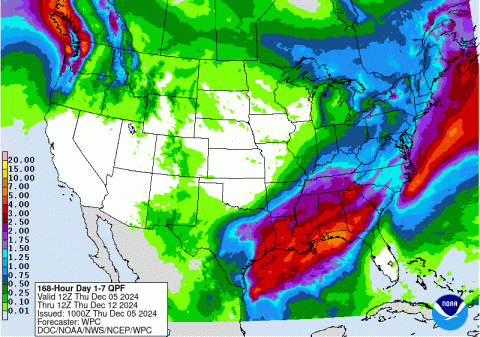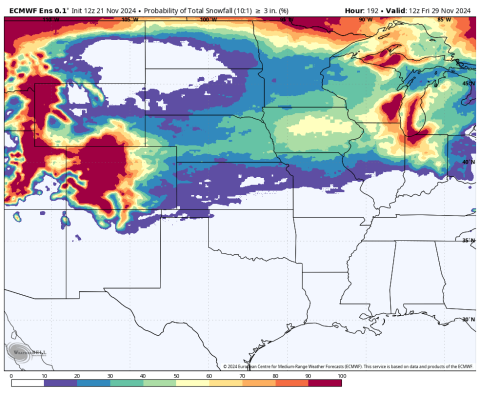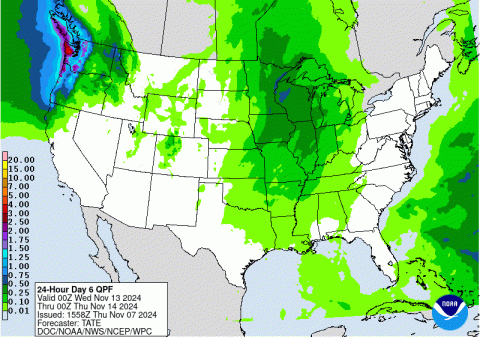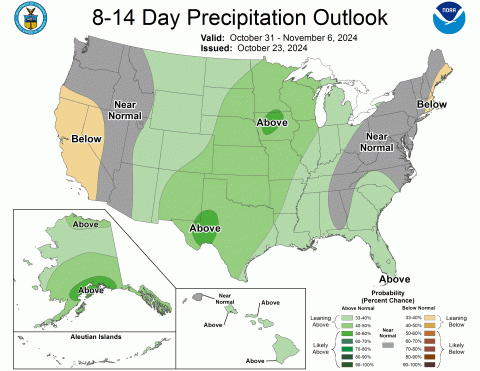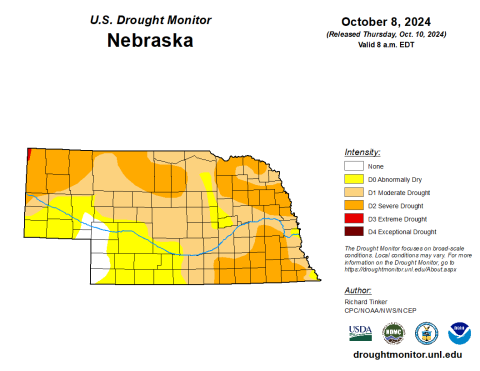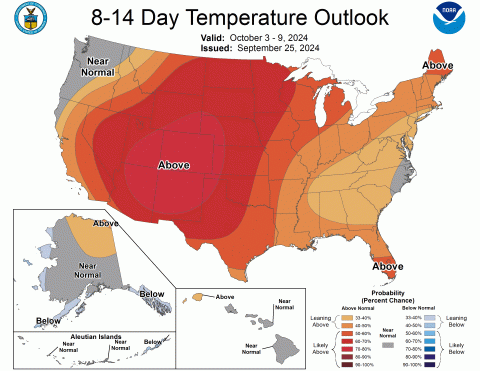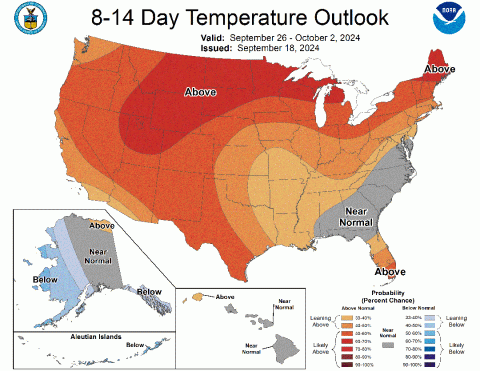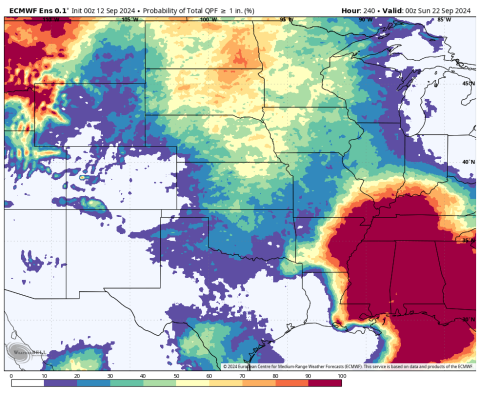Weekly Weather Outlook and Update: Dec. 5, 2024
December 6, 2024
Mild conditions are expected this weekend, followed by cooler temps and slim chances of precipitation throughout next week.
Weekly Weather Outlook and Update: Drought Relief and a White Thanksgiving?
November 22, 2024
The outlook for Nebraska indicates a promising shift toward drought relief, with significant precipitation already benefiting central and eastern areas. Forecasts suggest additional moisture Thanksgiving week, including the potential for light snow in some regions.
Weekly Weather Outlook and Update: Nov. 7, 2024
November 8, 2024
A mix of beneficial rainfall and possible light snow is expected to continue improving drought conditions next week, with mild temperatures anticipated early in the week before cooler weather and more precipitation sets in.
Weekly Weather Outlook and Update: Rain Finally Falls on Nebraska
October 25, 2024
Warmer temperatures may return early next week, with record highs possible. More rain is tentatively forecasted for next weekend, with hopes for additional moisture in November.
Weekly Weather Outlook and Update: Majority of State Now in Drought
October 11, 2024
Rapid drought development in Nebraska is overlapping a critical time for winter wheat crop development, causing below-normal emergence, as well as heightened risk of wildfire during harvest.
Weekly Weather Outlook and Update: Another Dry Week Ahead
September 26, 2024
Harvest efforts will benefit from the warm, dry weather ahead, but there's also a heightened risk of wildfire and worsening drought through the beginning of October.
Weekly Weather Outlook and Update: Sept. 19, 2024
September 19, 2024
After a cooldown and much-needed rain to usher in the first day of fall this weekend, a summer-like sizzle will return to Nebraska next week, likely bringing worsening drought with it.
Weather at a Glance: Dry Spell Ending?
September 12, 2024
Drought conditions may ease with several chances of precipitation next week, beginning Tuesday evening.
